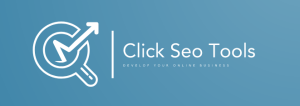Page speed plays a crucial role in enhancing the overall performance and success of a website. With the ever-increasing demand for instant information, users nowadays expect websites to load quickly. In this article, we will explore the importance of page speed for SEO and how it affects the user experience, search engine rankings, and ultimately, the success of your online presence. So, strap in as we unravel the significance of page speed and its impact on your website’s visibility and engagement.
Why is Page Speed Important for SEO?
Page speed is one of the crucial factors that can significantly impact a website’s performance and success in search engine optimization (SEO). When it comes to ranking high on search engine result pages (SERPs), having a fast-loading website is no longer just a nice-to-have feature, but a necessity. In this article, we will discuss the various reasons why page speed is important for SEO, and how it can benefit your website in terms of user experience, search engine rankings, and overall site performance.
Review contents
Improves User Experience
In today’s fast-paced digital world, users expect instant gratification. They are accustomed to fast-loading websites and have little patience for slow-loading pages. When your website loads quickly, it creates a smooth and seamless user experience, allowing visitors to find the information they need without any frustrating delays.
A fast-loading website makes it easy for users to navigate through different pages, promoting engagement and encouraging them to spend more time on your site. On the other hand, if your website takes too long to load, users are likely to become impatient and leave, increasing your bounce rate.
Reduces Bounce Rate
Bounce rate is a metric that measures the percentage of visitors who leave a website after viewing only one page. A high bounce rate can be detrimental to your SEO efforts and overall website performance. Users tend to bounce back from websites that take too long to load or do not provide a seamless browsing experience. By improving your page speed, you can reduce your bounce rate and keep visitors engaged for longer periods, which is a positive signal to search engines.
Increases Conversion Rate
In addition to keeping visitors engaged, a fast-loading website can also have a positive impact on your conversion rate. Studies have shown that faster page load times lead to higher conversion rates, as users are more likely to complete desired actions such as making a purchase, filling out a form, or subscribing to a newsletter. By optimizing your website’s speed, you can create a more frictionless user experience and increase the likelihood of conversions.
Enhances Mobile Experience
With the exponential growth of mobile usage, having a fast-loading website has become even more critical. Mobile users are often on-the-go and have limited time and patience to wait for a slow-loading website. Moreover, search engines prioritize mobile-friendly websites in their rankings, and page speed is a crucial factor in determining mobile-friendliness. By ensuring that your website is fast and mobile-friendly, you can provide an optimal user experience across all devices and improve your SEO performance.
Improves Organic Rankings
Search engines, such as Google, consider page speed as one of the ranking factors in their algorithms. Websites that load faster are more likely to be rewarded with higher organic rankings on SERPs. This is because search engines want to prioritize websites that offer the best user experience. By optimizing your website’s speed, you increase the chances of ranking higher on search engine result pages, attracting more organic traffic and potential customers.
Faster Crawling and Indexing
Search engines regularly crawl and index websites to understand their content and rank them accordingly. A fast-loading website makes it easier for search engine bots to crawl and index your pages efficiently. When search engines can access and understand your content quickly, they are more likely to include it in their indexes, increasing your website’s visibility and discoverability.
Better User Engagement
Page speed has a direct impact on user engagement metrics, such as time on page, page views, and interaction rates. When your website loads quickly, users are more likely to stay longer, explore more pages, and interact with your content. This improved user engagement sends positive signals to search engines, indicating that your website is valuable and relevant to users’ search queries.
Improves Site Usability
A fast-loading website contributes to better overall site usability. When your website loads quickly, users can easily access and navigate through different pages, find the information they need, and complete desired actions without any frustrating delays. This seamless and user-friendly experience not only promotes user satisfaction but also encourages repeat visits and referrals, ultimately improving your website’s usability and performance.
Decreases Site Abandonment
A slow-loading website can be incredibly frustrating for users, leading to site abandonment. When users encounter delays or performance issues, they are more likely to abandon your site and find a faster alternative. This not only negatively impacts your bounce rate but also reduces the chances of conversions and customer retention. By improving your page speed, you can decrease site abandonment, retain more visitors, and increase the likelihood of achieving your website’s goals.
Improves Overall Site Performance
Page speed plays a crucial role in determining the overall performance of your website. A slow-loading website not only affects user experience and engagement but also hampers various other aspects, such as site speed, server load, and bandwidth consumption. By optimizing your page speed, you can improve the overall performance of your website, reduce server load, and enhance the overall user experience.
In conclusion, page speed is a critical factor that directly impacts SEO and website performance. By focusing on improving your website’s page speed, you can enhance user experience, reduce bounce rates, increase conversions, improve organic rankings, and ultimately improve the overall performance of your website. Invest in optimizing your page speed, and you will reap the rewards in terms of improved SEO and increased success online.


























